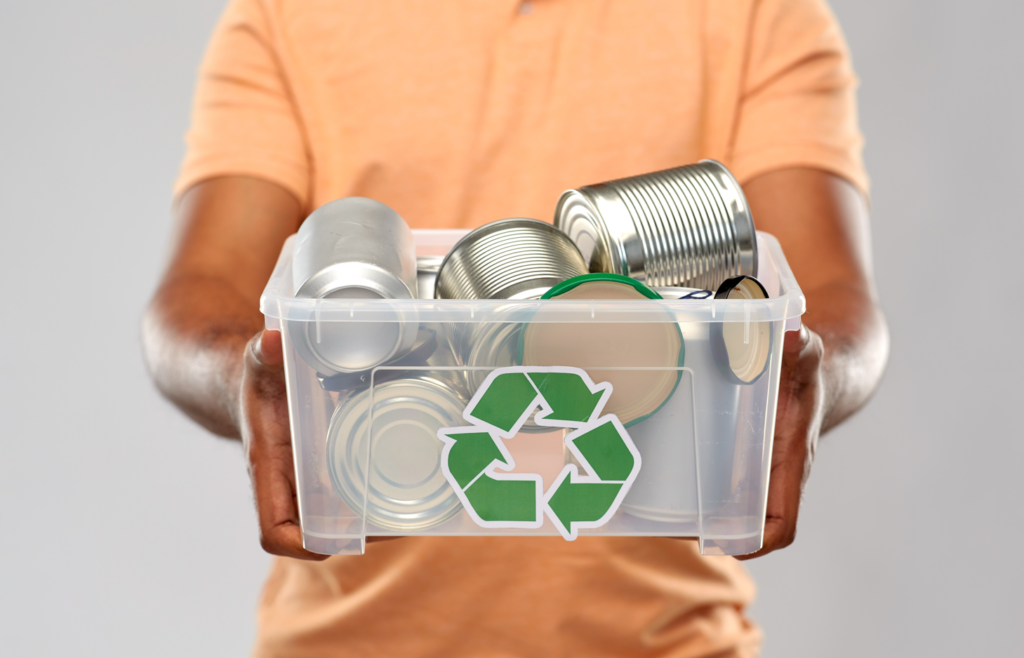Maximizing Your Metal Recycling Payout: Tips and Strategies

Metal Recycling
Metal recycling is not just an eco-friendly choice—it’s a profitable venture for those savvy enough to maximize their returns.
Whether you are a seasoned recycler or just starting, these tips and strategies can help you get the most out of your metal recycling efforts.
In this post, dive into practical advice and industry insights that can significantly increase your metal recycling payout.
Understand Metal Types for Maximum Profits
Know Ferrous vs. Non-Ferrous Metals
First, learn the difference between ferrous and non-ferrous metals.
Ferrous metals like steel and iron contain magnetic properties and are generally less valuable than non-ferrous metals.
Non-ferrous metals, including aluminum, copper, brass, and stainless steel, do not contain iron and are typically more lucrative.
Identify Valuable Metals
Learn to identify and separate valuable metals like copper, aluminum, and brass.
Copper, in particular, is highly sought after and commands high prices.
Knowing what each metal looks like and how to test for them, such as using a magnet to identify ferrous metals, can make all the difference in maximizing your payout.
Sort and Clean Your Metals
Sorting and cleaning your metals before taking them to a recycling facility can significantly increase their value.
Remove any non-metal attachments, such as plastic or rubber, as these can lower the price you receive.
Clean metals are easier to process and, therefore, more valuable to recycling centers.
Learn Where to Source Recyclable Metals
Residential Sources
Common household items like old appliances, electronics, and even plumbing fixtures can be excellent sources of recyclable metals.
Keep an eye out for garage sales, moving sales, and online marketplaces where people often dispose of metal items for free or very cheaply.
Commercial and Industrial Sources
For larger quantities, consider reaching out to local businesses, construction sites, and factories.
These places often have scrap metal they need to dispose of and may be willing to give it to you for free or at a low cost.
Building relationships with these sources can provide a steady stream of materials.
Public and Community Events
Community cleanup events, local recycling drives, and electronic waste collection events are excellent opportunities to gather significant amounts of scrap metal.
Volunteer to help organize or participate in these events, and you may be allowed to take home the collected metal.
Know the Best Practices for Storing and Transporting Metals
Safe Storage Solutions
Proper storage is essential to maintain the quality and value of your metals.
Use sturdy bins and containers to store metals separately by type.
Keeping metals dry and covered will prevent rust and degradation, which can decrease their value.
Efficient Transport Methods
Transporting your metals efficiently can save you time and money.
Invest in a reliable vehicle that can handle heavy loads, and plan your trips to recycling centers to minimize fuel costs.
Some recycling facilities offer pick-up services, which can be a convenient option if you have large quantities of metal.
Importance of Documentation
Keeping accurate records of the types and amounts of metals you collect can help you track your profits and identify which materials are the most lucrative.
Document the sources, weights, and sale prices of your metals to understand the market trends better and optimize your recycling strategy.
Navigate Market Prices and Trends
Keep Up With Market Rates
Metal prices can fluctuate based on supply and demand, economic factors, and global trends.
Stay informed about current market rates by checking reliable sources like commodity price indexes and industry news websites.
This knowledge will help you decide when to sell your metals for the highest payout.
Time Your Sales
Timing is everything when selling scrap metal. Prices tend to peak during certain times of the year or economic cycles.
Sell your metals when prices are high to maximize your returns.
Conversely, if prices are low, it might be worth holding onto your metals until the market improves.
Build Relationships With Buyers
Establishing good relationships with local scrap yards and metal buyers can lead to better deals and reliable income.
Be transparent and fair in your dealings, and always ask for competitive quotes.
Some buyers may offer loyalty programs or higher rates for consistent suppliers.
Utilize Technology and Resources
Online Marketplaces and Apps
Leverage technology to find the best deals and stay informed.
Online marketplaces allow you to compare prices from different buyers.
Additionally, mobile apps can help you track market trends, locate recycling centers, and manage your inventory.
Educational Resources and Communities
Join online forums, social media groups, and industry associations to network with other metal recyclers.
These communities are valuable resources for sharing tips, discussing market trends, and finding new sourcing opportunities.
Continuous learning is key to staying ahead in the recycling business.
Tools and Equipment
Investing in the right tools can streamline your recycling process and increase your efficiency.
Basic tools like wire strippers, magnets, and scales are essential for identifying and preparing your metals.
More advanced equipment, such as metal detectors and compactors, can further enhance your operations.
Maximizing your metal recycling payout requires a combination of knowledge, strategy, and effort.
By doing the above, you can significantly increase your profits. Remember, every piece of metal has value—it’s up to you to unlock its full potential.
Ready to boost your recycling profits? Start implementing these expert tips and strategies today, and watch your earnings grow!
Category: Recycling




